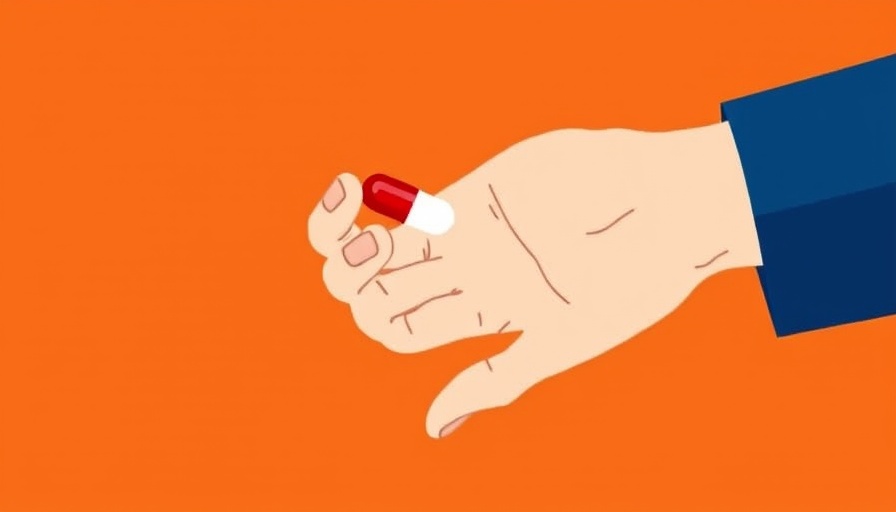
Understanding the Right Time to Taper Off Antidepressants
Coming off antidepressants is a decision that many individuals grapple with, especially upon feeling the positive effects of the medication. For millions of Americans, these medications have proven to be lifesaving, helping individuals manage depression and anxiety. As the journey continues, however, the question remains: Am I ready to stop taking my antidepressants?
Experts stress that the decision to stop should not be taken lightly. As Dr. Dustin Z. DeYoung, a psychiatrist at UCLA Health, emphasizes, this decision is highly nuanced and warrants open dialogue with your prescribing physician. The collaboration between patient and doctor is crucial to ensure a supportive, informed approach. But how can you know if it's the right time to taper off those pills?
Key Indicators That Might Signal It's Time to Step Down
Identifying when to make changes to your medication is not cut and dry. Mental health professionals often evaluate various signs before suggesting it might be time to taper. Here are some of the common indicators they monitor:
- Stable Mental Health: If you've maintained stability without significant depressive episodes for a stretch of six to eighteen months, you might be ready to explore tapering options based on your individual history.
- Strong Support System: Having a solid network of family or friends can play a vital role in supporting you during the transition. Their presence can bolster your mental health as you consider reducing medication.
- Self-awareness and Insight: Understanding your emotional states and recognizing situations that might trigger depression is important. This self-regulation indicates a readiness for tapering.
Engaging in the Conversation with Your Doctor
Communication with your healthcare provider is essential in this journey. Discussing your feelings and concerns about tapering can lead to a collaborative approach. Dr. Steven Siegel, chief mental health officer at Keck Medicine of USC, urges patients to actively participate in this decision-making process.
Plan to examine both the potential benefits of discontinuing medication and any associated risks, keeping in mind that every individual’s experience is unique, and the road to recovery may vary.
Knowledge is Power: The Psychology Behind Coming Off Medications
Understanding the psychological aspects of coming off antidepressants is key. Many individuals fear relapse, which can create an emotional barrier. It's vital to acknowledge these fears and address them head-on. Creating a tapering plan with your doctor can ease insecurities and provide a structured approach that instills confidence.
What to Expect When Tapering Off
As you prepare to taper off antidepressants, it's also important to be informed about what to expect. Some individuals may experience withdrawal symptoms, which can include mood swings, anxiety, and physical symptoms. Being educated about these potential effects can help you recognize them as a normal aspect of the tapering process.
Community Resources and Support
Look for support groups or local community resources dedicated to mental health. Sharing experiences with others who have undergone similar journeys can provide comfort and insights that may help you along your path.
Moving Forward with Confidence
Ultimately, the decision to come off antidepressants should feel empowering rather than daunting. Know that you are not alone in this process. Engaging deeply in conversations with healthcare professionals, leveraging support systems, and using self-reflective practices are all vital steps to guide you.
As you contemplate this change, remember: it’s not just about stopping medication—it’s about enhancing your overall quality of life. With a thoughtful and supported approach, you can forge ahead into this new chapter of your mental health journey, one step at a time.
Call to Action: If you're considering tapering off your antidepressants, take the first step today by scheduling an open discussion with your healthcare provider. Together, you can create a personalized plan that prioritizes your mental health and well-being.
 Add Row
Add Row  Add
Add 




 Add Row
Add Row  Add
Add 

Write A Comment